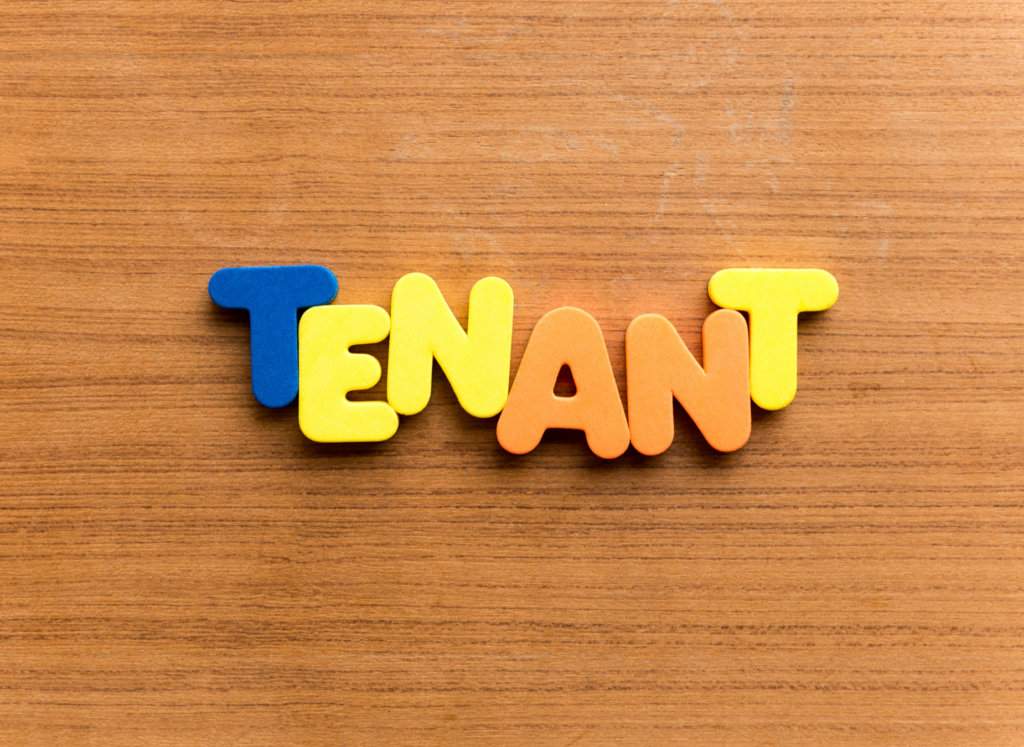
Seller Occupancy: How Long Can They Stay After Closing?
You’ve finished your real estate deal in Texas, and now you’re wondering: how long can the seller stay in the house after closing? This is a key question for both buyers and sellers. Let’s break it down.
What Are the Standard Terms for Seller Occupancy in Texas?

In Texas real estate, seller occupancy after closing is usually handled with a seller occupancy agreement, also known as a leaseback option. This agreement lets the seller stay in the home for a set time after the sale. The details can differ, but buyers and sellers usually negotiate these terms during the deal.
A seller might ask to stay briefly to ensure a smooth move. The buyer-seller agreement in Texas will include details like how long the seller can stay and what payment they need to make to the buyer. This setup is often functional when the seller hasn’t found their next home yet.
Considerations for Buyers When Sellers Remain Post-Closing
If you’re a buyer and the seller stays post-closing in Texas, keep a few things in mind. First, know the buyer’s possession date. Texas real estate laws require everyone to follow agreed dates and terms.
When a seller stays after closing, be aware of any legal issues or talks that might come up. Discussing seller rent after closing is essential, as it’s part of your talks. Ensure the move-out deadline is evident in your agreement to avoid problems later.
Knowing seller occupancy can better prepare you for a smooth real estate deal in Texas. Remember, each case is different, so adjust your approach based on your situation. If you have more questions, feel free to ask!
Legal Framework for Post-Closing Occupancy in Texas
Understanding what happens when a seller stays in the house after closing can be challenging. In Texas, it’s important to know about real estate closing agreements and occupancy rules, which are vital for both the buyer and the seller.
What Laws Govern Sellers Staying in the House After Closing?

In Texas, the Texas holdover laws explain the seller’s rights if they stay in the house after closing. These rules cover seller occupancy rights and any legal problems that might come up. Often, a seller leaseback agreement is used, which spells out how long the seller can stay and the conditions for their stay. A possession-after-sale agreement helps avoid problems by explaining what each party must do.
Understanding Buyer’s Rights When Sellers Extend Stay
Buyers have necessary rights during the post-sale occupancy time. They must know about Texas real estate possession laws to ensure the property is ready by the agreed possession date. If the seller wants to stay longer, a buyer-seller agreement or leaseback option can be set up to protect the buyer’s interests. However, buyers should watch out for risks and legal issues if the seller’s possession period is extended without proper paperwork. Always seek legal advice to protect your rights.
If you have gone through this situation or have questions, please comment. Your insights and experiences can help others in similar situations.
Negotiating Seller Stay After Closing
How to Negotiate a Rent-Back Agreement?

When buying a house, I needed to handle a seller’s rent-back agreement. Have you heard of a temporary leaseback? It happens when the seller wants to stay in the home for a while after the sale closes. This is common in Texas real estate deals, where a solid buyer-seller agreement is crucial.
Start with clear communication. We talked with the sellers to set terms for the rent-back provision. It’s like a leaseback option—deciding how long they’ll stay, what they’ll pay, and other details. In Texas, the contract can be specific. A well-defined temporary lease agreement ensures everyone knows their responsibilities, avoiding tenant-related issues later.
If you’re in this situation, talk openly. Consider what you would want if you stayed on temporarily and ensure the agreement reflects those needs.
Pitfalls to Avoid in Post-Closing Agreements
There are pitfalls in a seller’s stay after closing that we learned to avoid. Understanding legal issues is important. Real estate possession laws in Texas, including Texas holdover laws, can affect the seller’s post-possession rights. If the seller overstays without an agreement, the buyer’s possession date can be delayed.

Thoroughly outlining obligations and liabilities in documents helped us reduce risks. For example, defining who handles utilities or damages during post-sale occupancy is crucial. Without this, either party could face unexpected costs or disputes.
My best advice? Focus on every detail in these agreements. Understand seller occupancy rights and plan to avoid hassles. Mistakes can lead to extra costs or legal problems in Texas real estate. Have you faced similar challenges? How did you manage them?
These experiences have taught me a lot about smoothly negotiating and completing post-closing agreements. I’m always interested in learning from others in similar situations. Feel free to share your thoughts—you never know who might benefit from your story!
Financial Implications of Seller Stay
What Costs Are Associated with Seller Rent-Backs?
In a seller rent-back agreement, the seller can stay in the home for a short time after selling it. They pay rent to the buyer during this period. In Texas, this is often called a temporary leaseback. The agreed-upon daily rental fee is part of the real estate transaction and should be in the contract.
Other costs might include a security deposit and possible prorated property taxes or utilities. These expenses should be clearly stated in the agreement to prevent any misunderstandings after closing. Have you experienced a seller rent-back before? What costs were involved in your contract?
How Does Seller Occupancy Affect Home Insurance?

A seller’s stay in the home after the sale affects home insurance. Knowing how this home sale-leaseback changes risks is essential for sellers and buyers in Texas. Once the home is sold, the insurance risk profile changes if the seller still occupies it.
The buyer owns the house but doesn’t live there yet, which could create liability issues. The real estate contract should cover these details to protect both parties. Buyers should talk to their insurance provider about any coverage changes needed for this new situation. Have you faced insurance challenges during a home sale-leaseback? What solutions worked for you?
Feel free to share your experiences and questions!
Managing Expectations: The Seller’s Perspective
How Can Sellers Plan Their Move-Out Timeline?

Selling a home in Texas requires extensive planning, especially regarding your move-out timeline. Start planning as early as possible and familiarize yourself with terms like “seller moving timeline Texas” and “move-out deadline Texas.” Once you’ve agreed to a sale, you must know your “home sale possession” date to prepare for your next steps.
Understanding the “seller timeline after sale” will help determine your “seller exit strategy.” After closing, you might wonder how long you have before moving out. This time often depends on the agreement you make with the buyer. Talk about the details of your “real estate transaction Texas” early on to avoid surprises and ensure your “seller’s stay period” fits your plans.
Having a clear plan helps you and keeps things friendly with buyers. What has helped you when planning a move-out? I’d love to hear about it!
Tips for Maintaining Good Buyer-Seller Relationships During Extended Stays

Good communication is important if you stay home longer after selling it. If you’re considering a “temporary leaseback Texas,” make an explicit “buyer-seller agreement Texas.” This can help set expectations and responsibilities, avoiding misunderstandings.
Ensure everyone is okay with the terms of the “post-sale occupancy.” If you’re wondering how to handle this, here are some tips:
- Open Dialogue: Keep talking and address any concerns quickly.
- Honor Agreements: Stick to what you’ve agreed with timelines and money.
- Be Respectful: Consider the buyer’s viewpoint and meet reasonable requests.
These points can help keep the peace during “seller post-possession.” Have you gone through post-sale occupancy? Please share your experiences or any advice!
FAQs:
What are the seller’s options for staying in the house after closing in Texas?
In Texas, sellers can sometimes stay in the house after closing through a residential leaseback deal. This must be agreed upon during negotiations and included in the sales contract. Discussing it with the buyer and their escrow agent is important to keep things smooth.
How does the seller’s temporary stay impact new homeowners?
When sellers stay after closing, new homeowners need to know the agreed terms, like how long and any fees involved. Clear communication helps manage expectations and prevents misunderstandings. This temporary stay can give sellers extra time to move while buyers settle into their new homes.
What’s the typical duration for a seller to remain in the house after closing in Texas?
The stay usually ranges from a few days to 45 days, depending on what both parties agree. It should be clearly stated in the contract. Knowing each other’s needs helps ensure a positive experience for everyone.
Can sellers charge rent during their extended stay?
Yes, sellers can pay rent during their stay. This rent helps buyers cover any extra costs from the delayed move-in. It’s essential to agree on these rental terms beforehand.
Are there any risks for buyers if sellers stay after closing?
Buyers might face risks such as moving delays or unexpected maintenance issues. A clear agreement and regular communication with the seller can help minimize these risks.
What contingencies should sellers consider when planning an extended stay?
Sellers should have backup housing plans in case things change. Being flexible and prepared ensures they meet the agreed move-out dates without problems, making the transition smoother for everyone.
How do negotiations work for post-closing occupancy?
Negotiations involve discussing the length of the stay, any rent paid, and who handles repairs or maintenance. Involving a broker or attorney can help make sure everything is clear and protected.
How can sellers prepare for their extended stay?
Sellers should plan for maintenance tasks and set clear timelines. Communicating with buyers is key to avoiding misunderstandings and ensuring everyone has a good experience during this transition.
Key Insights
- Knowing how long a seller can stay in the house after closing is vital in Texas. This time can change, so understanding your rights and duties helps smooth things.
- Commercial real estate in states like Michigan and Alabama has challenges, such as landlocked properties and different markets compared to places like Florida or New York.
- Sellers in Texas should know their lease options and how long they can stay after selling their home. They might have to pay to extend their stay or make moving plans.
- Investors examine cash flow, management plans, and market conditions in Texas and other areas, such as Denton and Tyler.
- Subscribe to our newsletter for updates on seller financing, company news, and inspection processes in states like Tennessee and Florida.
- Handling documents like deeds and contingency clauses is important in the closing process in Texas. Good documentation prevents mistakes.
- Tenant rights and rental agreements matter, especially when moving from renting to owning or dealing with businesses and small investors.
- Knowing about appraisals, mortgage options, and brokerage fees can help you handle property deals better, whether you’re buying or selling.
- Connect with us on Instagram to learn how traditional and flexible investment strategies work in today’s real estate market, with examples and insights into winning scenarios.
This information applies to Texas and its cities, including Austin, Houston, El Paso, and more. Please call us at (214) 617-1510 for assistance or if you have questions. You can also visit our website at A Cash Home Buyer for more details.
Sell Your Dallas Home This Week!
Other Blog Articles You May Enjoy





